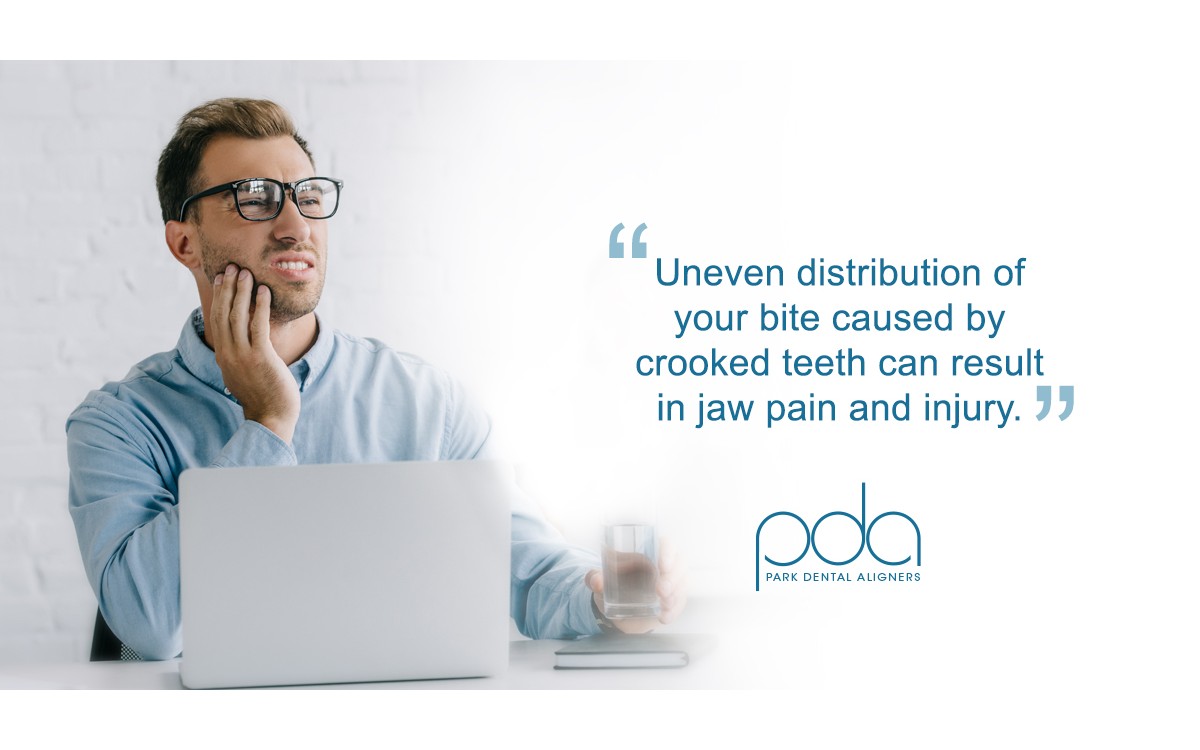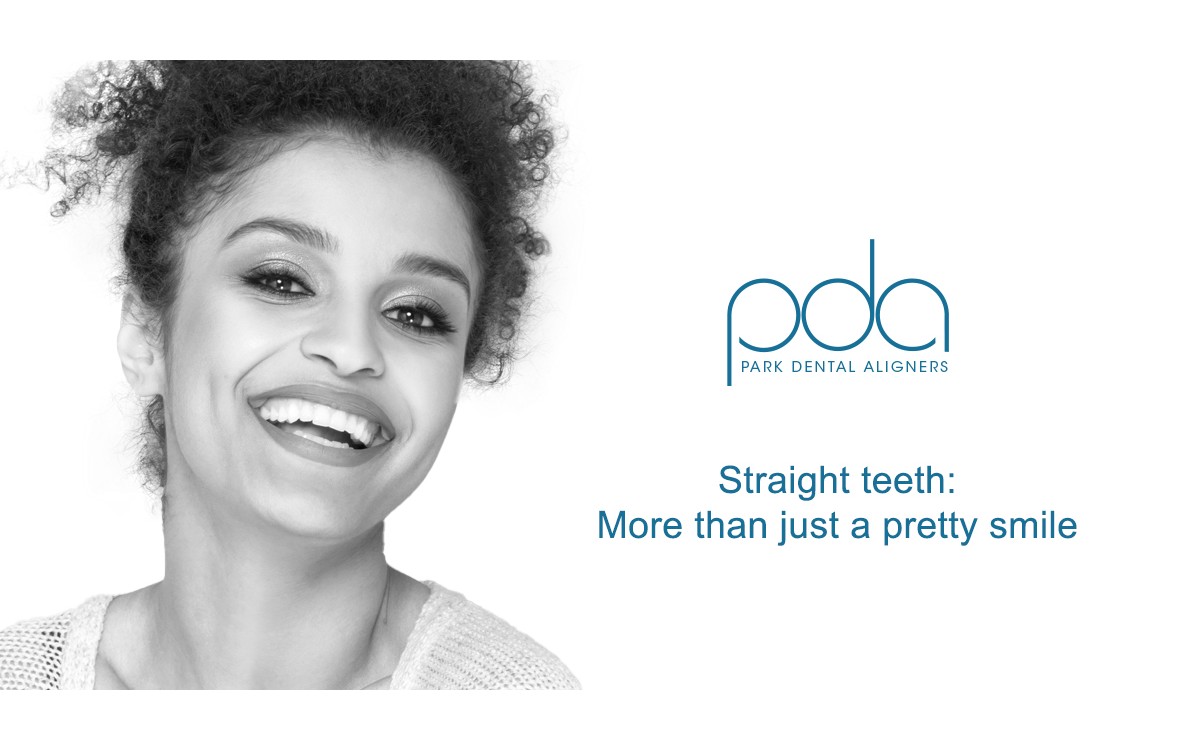Uneven distribution of your bite caused by crooked teeth can result in jaw pain and injury.
The joint where your upper and lower jaw meet on each side is called your temporomandibular joint or TMJ. This joint attaches your lower jaw to your head and is in motion any time you speak, laugh, eat, yell or yawn. It takes very little to cause stress and strain to joints and a misaligned bite can cause several problems. This include headaches, migraines, sore TMJ joints, and even worn, chipped, or broken teeth.
Other problems can include night-time clenching and grinding, jaw ‘popping’, ear ringing, difficulty opening or closing the mouth, and even dizziness. Some people spend years seeing one specialist after another trying to resolve a problem because they don’t typically associate some of these issues with their TMJ or teeth misalignment.
Fewer headaches
Misaligned teeth can cause stress on the jaw and gums, create tension, and cause grinding. This can lead to recurring headaches and neck pain which can radiate through the whole body. In addition to being unpleasant, it can make it difficult to sleep. Orthodontic treatment has been shown to reduce these issues.
Improved ability to eat
Crooked teeth make chewing more difficult. Every case is different, and depending on the degree of the misalignment, people may have issues chewing properly or eating certain foods. Many people subconsciously develop the habit of not chewing their food as well as they should which can lead to issues with their digestive health.
It is important to chew your food thoroughly before swallowing, to aid in digestion. The digestive process begins in the mouth, where food is broken down into smaller pieces and introduced to enzymes in saliva, which help break down the food.
Less wear and tear
Chewing can be a strenuous activity for your teeth. When your teeth are properly aligned, the pressure from your bite will be distributed equally across all of your teeth, which will help them to wear evenly. If your teeth are misaligned, it can result in more wear and tear on certain teeth. Repairing this uneven wear can mean crowns, bridges, tooth implants, or other extensive dental work, which can be very expensive.
Safer from damage and breakage
People who have crooked teeth are at a greater risk for breakage, especially if you are involved in contact sports or lead active lifestyles. Straightening teeth protects you by preventing them from sticking out and being at risk of becoming broken during an accident. Straighter teeth also allow people to wear protective mouth guards more comfortably and securely.
When teeth are crooked, not only are you at a greater risk of breakage, but the teeth beside, above or below the crooked teeth tend to shift. This can easily lead to fractures, chips, and breaks. While these situations typically require a crown to repair, a fracture below the gumline means an extraction will be needed. This results in additional expenses and ongoing maintenance.



